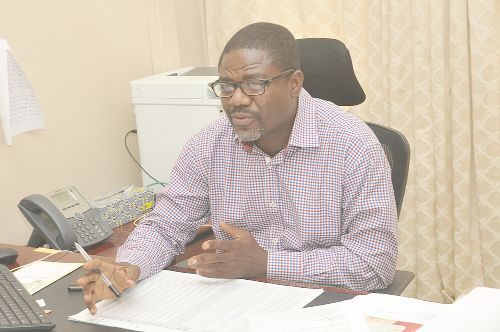
Free Senior High School education; A step in the right direction, but...!
The current government’s policy of Free Senior High School (SHS) education is a laudably brave and an important step, even if its formulation and implementation seem unsteady right now.
It is vital for the government to integrate this into this crucial policy, not only for it to be truly free and fair, but also, to guarantee the country’s demographic dividend (economic advantages derived from human resources).
Ghana’s free SHS has been a very welcome policy
Nonetheless, the question is, should it be applied across the board, considering the fact that the best public
These private schools are, parochially, regarded as the purveyors of good quality education because they often produce high-performing pupils in the national Basic Education Certificate Examination (BECE).
In contrast, most pupils in the public primary and junior high schools (JHSs) tend to perform poorly in the national BECE that gives a pupil access to a ‘good’ public SHS.
Recent findings on learning assessment suggest that in nine out of 24 and six out of 24 countries in sub-Saharan Africa that have data, less than half of the pupils who complete public primary schools have achieved minimum proficiency levels in mathematics and reading respectively.
For instance, in Ghana and Malawi, nearly all pupils completing Grade/Class Two, who were assessed recently could not read a single known word such as ‘the’ or ‘cat’.
This learning deficit implies that even pupils who complete primary level education, especially in most public schools, lack the fundamental competencies.
The free SHS policy may be a welcome opportunity for those who pass
Then again, it is often the privileged private JHS graduates, most of whom have been adequately prepared within the private basic education sector to pass BECE, who qualify to access the previously
Indeed, the disparity between high-and low-status schools is deepening at primary, JHS and SHS levels. Ironically, it is often a challenge for a public JHS graduate to gain entry into a high-status SHS despite the fact that all the high-status SHSs are public.
While this article is not recommending that Ghana’s free SHS policy should necessarily be discriminatory, it could be so, on the basis of parental economic standing.
Otherwise, there should be a policy that encourages parents/guardians of those who benefited from expensive private basic education and, consequently, gained admission to the most prestigious public SHSs in the country to donate into a Hardship Fund to support not only the less-endowed SHSs but also the resource-poor public primary and JHSs.
This and other recommendations are pertinent.
Education hardship
The proposed fund should be established by the government and resourced with donations or levies from well-to-do parents/guardians of private basic school graduates who are benefiting from the free SHS policy.
It will help alleviate the resource dearth in the public basic schools and address issues of poor quality education,
Private education sector
Successful and long-standing private schools in Ghana must be encouraged to help contribute to improving the quality of education in public basic schools through creative initiatives--their private sector corporate social responsibility.
General private sector
Every private business must contribute something to the upkeep of public basic schools in their communities and beyond.
Even those businesses that sell food and other items to pupils/students on basic school and SHS compounds should offer a tiny percentage of their earnings to help schools to boost their teaching and learning materials, and supervision systems.
Human resources
Retired educationists and teachers can also be encouraged to occasionally assist in public primary schools, JHSs
Trade deals
The deepening of economic and trade relations between Africa, China/other Asian countries and others is an opportunity for Ghana to explore creative and productive partnerships to benefit this free SHS policy.
Bargaining strength
Currently, the bargaining power of Ghana as a nation is growing due to the intensification of the
This emerging phenomenon offers opportunities for the Ghana Government to strongly negotiate better economic and trade deals to benefit this free SHS policy.
Benefits currency deals
Considering growing trade with China, Ghana should adopt the Chinese Yuan as a reserve currency to ease the persistent pressure on Ghana’s Cedi because of its constant decline against the dollar.
As in Nigeria, the currency exchange deal, would, perhaps increase Ghana’s foreign reserves and have an overall positive effect on the Ghanaian economy and benefit education investment.
Alternative resources
The government should establish an independent task force that will employ innovative and evidence-based strategies to identify the numerous obvious and less obvious alternative resources/funding.
The writer is an education consultant
email: emefa.amoako@
oxfordatp-mentoring.com